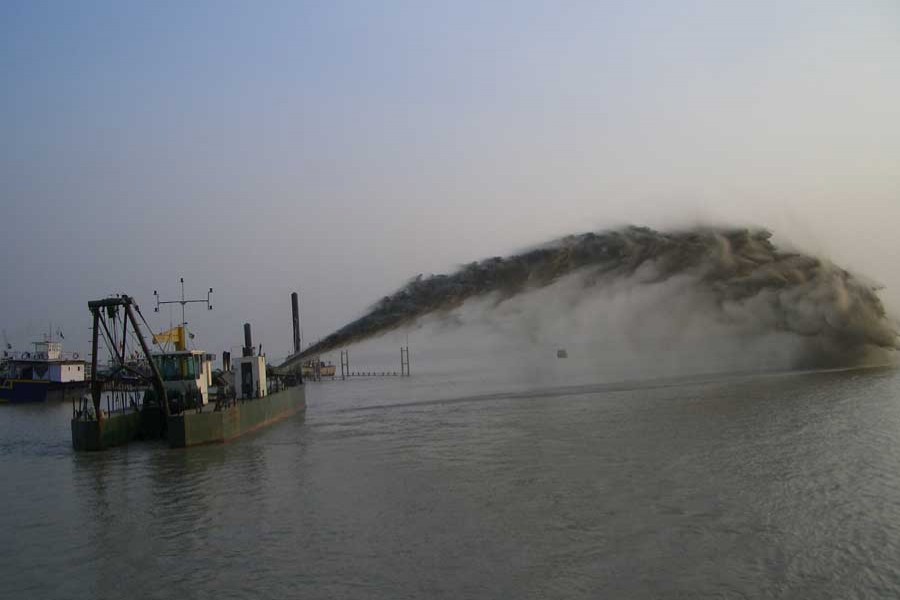It is still not certain whether excessive siltation in the major rivers of greater Sylhet is responsible for the unprecedented flooding of the vast swathes of farm and non-farm lands in the district. Although the onrushing waters from the upper regions in India is known to have caused the havoc, environmentalists tend to believe that rise of the river beds in the absence of dredging and huge deposits of plastic and polythene have aggravated the situation beyond control. Expert opinion apart, common sense suggests that had the rivers been under regular dredging, the flooding might not have been so devastating.
Besides addressing siltation as a measure of flood control, dredging of the country's numerous river channels to bring navigability has for long been an issue of paramount importance. Ironically, however, dredging is often termed a happy hunting ground for those involved in the under-water activity. The job while being highly cost-intensive because of the oil propelled device, is fraught with the burdensome task of monitoring the results in a transparent manner. Although this is an apparent deterrent to achieving desired results, there are times not only in the dry season but occasionally in the rainy season as well when the need for dredging becomes acute in the country. The common practice is to gather the bottom sediments and dispose them at different locations. Besides navigability, dredging in Bangladesh becomes necessary to protect coastal erosion through raising embankments alongside river banks.
In a country like Bangladesh where capital and maintenance dredging is required for a number of reasons besides navigability, there is a need for introducing modern technology to gear up performance level as well as ensure transparency. Capital and maintenance dredging, over the years, has undergone dynamic improvements worldwide with the introduction of high-tech trailing suction hopper dredgers and the mighty cutter suction dredgers. It has been found that dredging operations in the country are done mostly by the Bangladesh Inland Water Transport Authority (BIWTA) under the ministry of shipping, but as has been the case, the job is taken up at times of urgent need, when an emergency arises. In many cases it has been observed that due to poor quality of work or work not done as per procedures requiring transparency in monitoring, the same job has to be done all over again within a short time. As a result, it has become a repetitive and seasonal activity. Both natural and manmade, the problem has aggravated because of decades of malpractices and incompetence. It must be addressed squarely through maintaining strict accountability.
Recent newspaper reports say that the Ministry of Shipping has signed two deals to dredge river routes aiming to strengthen the capacity of Chattogram-Dhaka-Ashuganj corridor under World Bank funding. According to the deal, contractors will carry out excavation for development and protection of 13 river routes involving Tk 4.30 billion. Under the project, 900-kilometre waterways are to be excavated. In the light of past experiences, one only wishes that the concerned agencies remain steadfast in completing the work by ensuring transparency and accountability.


